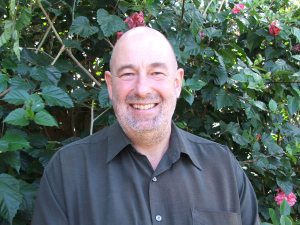Two big questions exist surrounding the Government's consultations on land use and freshwater quality, explains HortNZ chief executive Mike Chapman.
OPINION: The Government's consultations on land use and freshwater quality have unearthed two questions.
They concern how far the regulation should extend into how food is grown, and the extent to which that regulation should impose limitations on how plants are grown.
The current debate is not about whether the goals of protecting highly productive land from houses and lifestyle blocks, and achieving better freshwater quality, are the right outcomes. These outcomes are generally accepted.
The difficulty lies in how to achieve these goals and how much regulation imposed by the Government and councils should extend into growing operations to achieve these outcomes. This question applies with equal force to farming animals and meeting the new requirements in urban areas. We are all in this together.
There are two extremes. At one end of the continuum is a state-run system that prescribes every activity that is to be undertaken. History has shown that such systems stifle innovation, growth and even reasonable levels of production.
At the other end of the continuum is a system left solely to competitive forces.
The Government’s current proposals clearly do not support a system left to competitive forces. We somehow have to find the middle ground together. Before we can reach that middle ground, we need to acknowledge what the intergenerational stewards of our land have already achieved.
Here, we part company with our urban neighbours. The rural sector has been nurturing the environment for generations and has done some amazing projects to protect the environment. Most of this has been done without the aid of government regulation.
The rural sector is well attuned to the environment and the impact of nature on our growing activities. These gains need to be acknowledged and the responsibility of the rural sector appreciated and considered when it comes to imposing regulation to achieve greater water quality.
What is needed is more of a partnership approach where all of New Zealand works together to achieve goals set by the Government. Politicians need to have a degree of respect and trust for the people of New Zealand who, with the right encouragement, will get on with making the changes required to achieve these goals -- for the good of the environment and future generations to come.
This will not be achieved by complex and tight regulatory controls. In reality, achieving environmental sustainability and dealing with the impact of climate change are issues well beyond any individual government. It is up to the people to respond, and for the Government to aid, guide and facilitate that response.
In the detail of what needs to be achieved, I think the role of the Government should be to set goals, provide guidelines and fund research and development that will enable urban and rural New Zealand to undertake the transformation.
At farm, orchard and commercial vegetable garden level, detailed rules will not achieve what we all desire. We already have methodology – in Farm Environment Plans – that will achieve the outcomes without detailed regulations.
Farm Environment Plans, based on best and good management practice, will progressively achieve the transformation needed. They will permit farming and growing operations to remain profitable and productive, so that the changes necessary can be made while we continue to feed New Zealand and our overseas consumers.
• Mike Chapman is chief executive of Horticulture NZ











